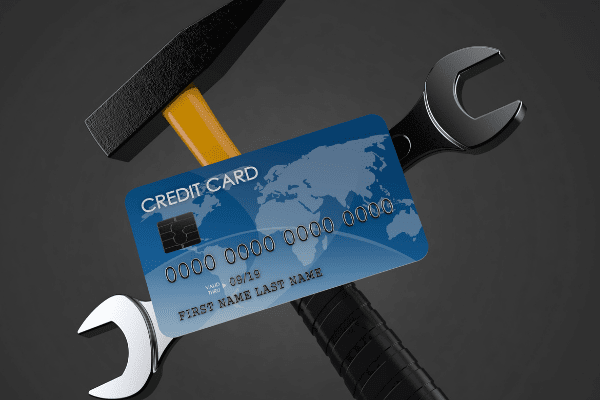Google may be your first stop when you need quick answers, but there are also plenty of great resources that will teach you the ins and outs of best credit repair without costing you a penny. It may seem like an impossible task to repair your credit, but if you take it one step at a time and make sure to stick with it over the long term, you’ll see major improvement to your credit report and credit score in no time.
Here are ten of the best credit repair tips out there on how to do just that.
1) Consider Free Options
Sometimes you don’t have to pay someone else to help you with your credit, as there are plenty of free options. For example, you can file your own disputes and request investigations into errors on your report. While not every mistake will be fixed, many will—and that’s worth a shot if it doesn’t cost anything.
2) Obtain your three free credit reports
When it comes to repairing your credit, there’s a lot of misinformation out there. You may have been told that paying down debt or adding a card to your arsenal will help your score. But if you need help with credit repair, it’s time to consult a professional. The first step is getting those free copies of your credit reports from Equifax, Experian and TransUnion, since all three are used by lenders when determining your rating. Find out exactly what’s listed under credit score information and identify any incorrect entries as soon as possible. Some items can be disputed online with the agencies—others require a written notice sent by certified mail.
3) Pay close attention to any legal action taken against you
Make it a point to pay close attention to any legal action taken against you. Whether it’s a debt collector calling you or an attorney filing suit, credit repair begins with watching your back. Pay attention and get these issues handled before they become big problems down the road. At some point, debt collectors will be calling and threatening lawsuits in order to sue you for unpaid bills if you don’t pay them in full—if that happens, check in with a best credit repair attorney who can help protect your interests and guide you through possible pitfalls.
4) Consider getting more information about identity theft

When you’re in the middle of a bout with identity theft, it can feel pretty hopeless. One easy way to start your recovery is by taking a closer look at your credit report and getting a complete picture of what’s going on. If there are any errors or suspicious activity, you’ll want to fix that right away before it does more damage to your credit score. Then, consider taking even more action to rebuild your credit history from scratch if necessary. It might not be fun—but it’s well worth it in the long run!
5) Learn what counts as good versus bad
It’s a good idea to take a close look at your credit reports and understand what counts as a bad mark. That way, you can make a plan for getting rid of these negatives while actively working on building up your credit history. While you can get a free report once per year from each major reporting agency (Experian, Equifax and TransUnion), it’s important to review all three reports to be sure that they are consistent with one another. If there are any errors or discrepancies, then you need to work with an expert in order to sort things out. Be sure that it’s someone reputable; otherwise you might wind up paying them more than they help you save in fees by opening accounts with them.
6) Disputing negative items can raise your score fast
When it comes to credit scores, one negative item can make a big difference. One mistake could drop your score by as much as 100 points or more. When you know there’s an error on your report, dispute it with all three credit bureaus (Equifax, Experian and TransUnion). (If there are errors on your report, having them corrected can increase your score significantly.) And don’t stop at disputing incorrect items; formally request that each bureau remove them from your report. You want to prevent potential lenders from seeing these mistakes or you might never get approved for new credit accounts. To do so, it may take up to six months of consistent payment activity before they’ll remove negatives items that are less than seven years old.
7) Understand your rights regarding medical debts
Everyone makes mistakes, but that doesn’t mean you should have to pay for them forever. If a medical bill is sent to collections or has been turned over to a debt collector, contact your state’s medical board and your state attorney general’s office for more information about your rights and options. If possible, dispute claims with collection agencies and negotiate settlements before debts go too far out of control. Finally, be proactive about improving your credit score so you can get back on track.
8) Follow all instructions carefully

Have you ever seen ads for companies that say they can help you fix your credit? Before using one of these services, you should know that there is no such thing as a quick fix to what some people call credit karma. There are certainly things you can do to improve your credit score, but it doesn’t happen overnight. Credit repair takes time and effort—but it’s not impossible. To make sure you aren’t wasting your money or getting ripped off by an illegitimate company, credit repair tips that will help you avoid common pitfalls.
9) If you do not understand instructions, find someone who does
There are plenty of methods to improving your credit score, but if you do not understand what is being said in any of these articles, leave it alone. You may inadvertently hurt your score and find yourself worse off than when you started. Be sure to find out who is giving advice and ensure that they know what they’re talking about. The last thing you want to do is blindly follow bad advice and wind up hurting your credit even more in an attempt to fix it. It can be hard knowing how much trust to put into self-proclaimed experts, but if you don’t feel like someone knows what they’re talking about, it’s probably best that you take a step back and look for another opinion before following along with their plan.
10) Do not skip any negative items you cannot fix right away
If you can’t fix a blemish right away, report it to all three credit bureaus and ask that they put a fraud alert on your account. A fraud alert is like an alarm for financial institutions: They’re required by law to verify your identity before they’ll open new accounts in your name, so crooks won’t be able to abuse your credit until you’ve had time to get things fixed. Fix errors as soon as possible: As noted above, bankruptcy will stay on your record for at least 10 years. That might sound like a long time, but most negative items don’t last nearly that long — especially if you tackle them sooner rather than later.





